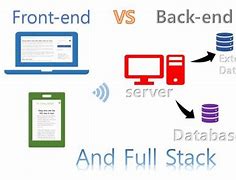Introduction to HR
How to Become a HR in India: Before we dive into the specifics, let’s get a clear understanding of what the role of an HR professional entails and why it’s so crucial for organizations.
Table of Contents
Understanding the Role of an HR Professional
The management of several aspects of human resources within a business is the responsibility of HR experts. This includes recruitment, employee development, performance evaluations, and ensuring compliance with labor laws and company policies.
Importance of HR in Organizations
HR plays a pivotal role in fostering a positive work environment, employee engagement, and overall organizational success. They act as a bridge between employees and management, ensuring that the workforce is motivated and aligned with the company’s goals.
Educational Requirements
To start your journey in HR, you need to meet certain educational prerequisites.
Bachelor’s Degree in HR or Related Field
Many HR roles require at least a bachelor’s degree in HR, business management, or a related field. This forms the foundation of your HR knowledge.
Postgraduate Degrees and Certifications
While a bachelor’s degree is essential, pursuing postgraduate degrees or HR-specific certifications can significantly enhance your career prospects and expertise.
Developing Key Skills
Apart from formal education, developing essential skills is vital for a successful HR career.
Communication and Interpersonal Skills
HR professionals need excellent communication skills to interact with employees, resolve conflicts, and convey policies effectively.
Problem-Solving and Conflict Resolution
You’ll often encounter challenging situations that require quick and effective problem-solving and conflict resolution skills.
Time Management and Multitasking
In HR, you’ll juggle multiple responsibilities, so mastering time management and multitasking is crucial.
Gaining Practical Experience
To truly excel in HR, practical experience is invaluable.
Internships and Entry-Level Positions
Start by seeking internships or entry-level HR positions to gain hands-on experience and exposure to real-world HR challenges.
Networking Opportunities
Building a strong professional network within the HR industry can open doors to various opportunities and valuable insights.
Legal and Compliance Knowledge
Understanding Indian labor laws and HR regulations is fundamental in this field.
Labor Laws in India
Familiarize yourself with the country’s labor laws, such as the Industrial Disputes Act and the Employees’ Provident Funds and Miscellaneous Provisions Act.
HR Policies and Regulations
Every organization has its HR policies and procedures. Learning to navigate these effectively is essential for your HR career.
Building a Professional Network
Networking is a powerful tool in HR.
Joining HR Associations and Groups
Consider joining HR associations and groups that provide a platform for networking and staying updated with industry trends.
Attending HR Conferences and Seminars
Participating in HR-focused events and conferences can expand your knowledge and connect you with influential professionals.
Resume Building and Job Search
Crafting an impressive HR resume and conducting an effective job search are crucial steps in your HR career journey.
Crafting an HR-Specific Resume
Tailor your resume to highlight your HR skills, certifications, and practical experience.
Effective Job Search Strategies
Use online job portals, company websites, and networking to find HR job openings that match your qualifications and interests.
Interview Preparation
Preparation is key to acing HR interviews.
Common HR Interview Questions
Familiarize yourself with typical HR interview questions and prepare concise, relevant answers.
How to Showcase Your HR Skills
During interviews, emphasize your skills in areas like employee relations, talent acquisition, and HR strategy.
Starting Your HR Career
Once you secure your first HR role, it’s essential to make a strong start.
Onboarding and Orientation
Pay attention during the onboarding process to quickly adapt to your new organization’s culture and expectations.
Setting Career Goals
Establish clear career goals and work towards them to advance in the HR field.
Career Advancement
As you gain experience, you’ll have opportunities for career advancement.
Moving from Junior to Senior HR Roles
Showcase your skills and leadership abilities to progress from junior positions to senior HR roles.
Pursuing Advanced HR Certifications
Consider pursuing advanced HR certifications to further enhance your expertise and credibility.
Challenges in the HR Field
In their jobs, HR specialists deal with particular difficulties.
Dealing with Employee Conflicts
Learn effective conflict resolution techniques to handle employee disputes professionally.
Staying Updated with HR Trends
The HR field is constantly evolving; staying informed about industry trends is essential.
The Future of HR
The HR landscape is evolving with technology and remote work trends.
Impact of Technology on HR
Technology is transforming HR practices, from recruitment automation to data analytics.
HR’s Role in Remote Work Environments
HR plays a crucial role in ensuring the success of remote work arrangements and employee well-being.
Conclusion
Becoming an HR professional in India is a rewarding journey that requires a blend of education, skills, and practical experience. By following the steps outlined in this guide, you can embark on a successful HR career path and contribute to the growth and development of organizations.
FAQs
What is the minimum educational requirement to become an HR professional in India?
Typically, a bachelor’s degree in HR or a related field is the minimum educational requirement for HR roles in India.
Are there any specific HR certifications that are highly regarded in the industry?
Yes, certifications like the SHRM-CP, HRCI’s PHR, and NIPM certifications are highly respected in the HR industry.
How can networking benefit my HR career?
Networking can provide you with valuable insights, job opportunities, and a supportive professional community.
What challenges can I expect to face in the HR field?
HR professionals often deal with employee conflicts, compliance issues, and the need to adapt to evolving HR trends.
How can I adapt to the changing landscape of HR due to technological advancements?
Staying updated with the latest HR technology trends and continuously upgrading your skills is essential to adapt to these changes.




